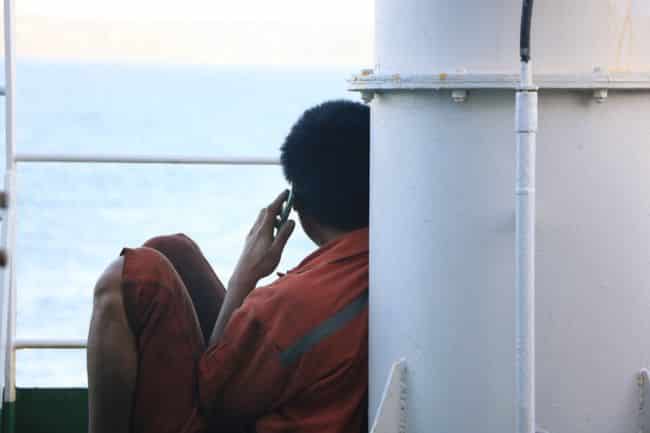
当前位置:新闻动态
Coronavirus: 80000 Filipino Seafarers With Lapsed Contracts Stranded At Sea
来源:philstar.com 编辑:编辑部 发布:2020/07/01 10:37:22
With national and international border shutting down in the wake of the COVID-19 pandemic, the repatriation of about 80,000 Filipino seafarers is long overdue.
Stranded on ships, with expired contracts of about 4 months, the signs of physical and mental fatigue have begun to sink in, Philstar stated.
This is a significant cause of worry as it is studied that the performance and health of marine workers dip considerably after considerable time at sea.
While the stranded seafarers are unable to get home, the seamen waiting on land too face an inability to report to work as there is a dearth of flights to international port cities that allow them to board ships. This has posed a problem to the largest population of Seafarers – The Filipinos, afraid to lose their employability advantage.
Coincidentally, the 26th of June, 2020 was also Filipino Seafarers’ day that honoured the 200,000 workers across international commercial vessels.
The COVID-19 lockdown has made the repatriation of seafarers a global crisis. The International Maritime Employers Council isn’t happy with overstaying workers which can result in a safety breach of the lives and operation on the ships.
This can further restrain vessels if found. Having said this, it is not a simple task either to digress from a set route in order to discharge the Filipino workers, at the risk of the additional cost of fuel, delay, and berths.
Federations, authorities, and trade unions, however aware of the consequences of extended labour, still stand undecided on workable solutions to these problems.
Arben Santos, CEO of Southwest Maritime and Co. is of the opinion that cooperation between labour, transport, and health industries (and officials) needs to be undertaken to be able to identify, locate, and sign-out seafarers while replacing them with fresh workers.
He believes that reopening Philippines’ international airports to allow restoration of crew change from across ports in Japan, Korea, the United States, Hong Kong, Netherlands, and Singapore is the way to go. COVID-19 testing, processing, and swift results within 24 hours are to be in priority for the seamen instead of 3-5 days, which could cause late reporting to work.
On the other hand, the Panama Ship registry proposed that the contracts be extended to three months to combat the issue of repatriation. This was met with disapproval by the trade unions.
Furthermore, The Philippines Overseas Employment Administration forbids contracts longer than the stipulated time. Secretary-General Kitack-Lim of IMO has implored the government to act quickly and allow shipping to accelerate moving to allow the workers to get back home.

